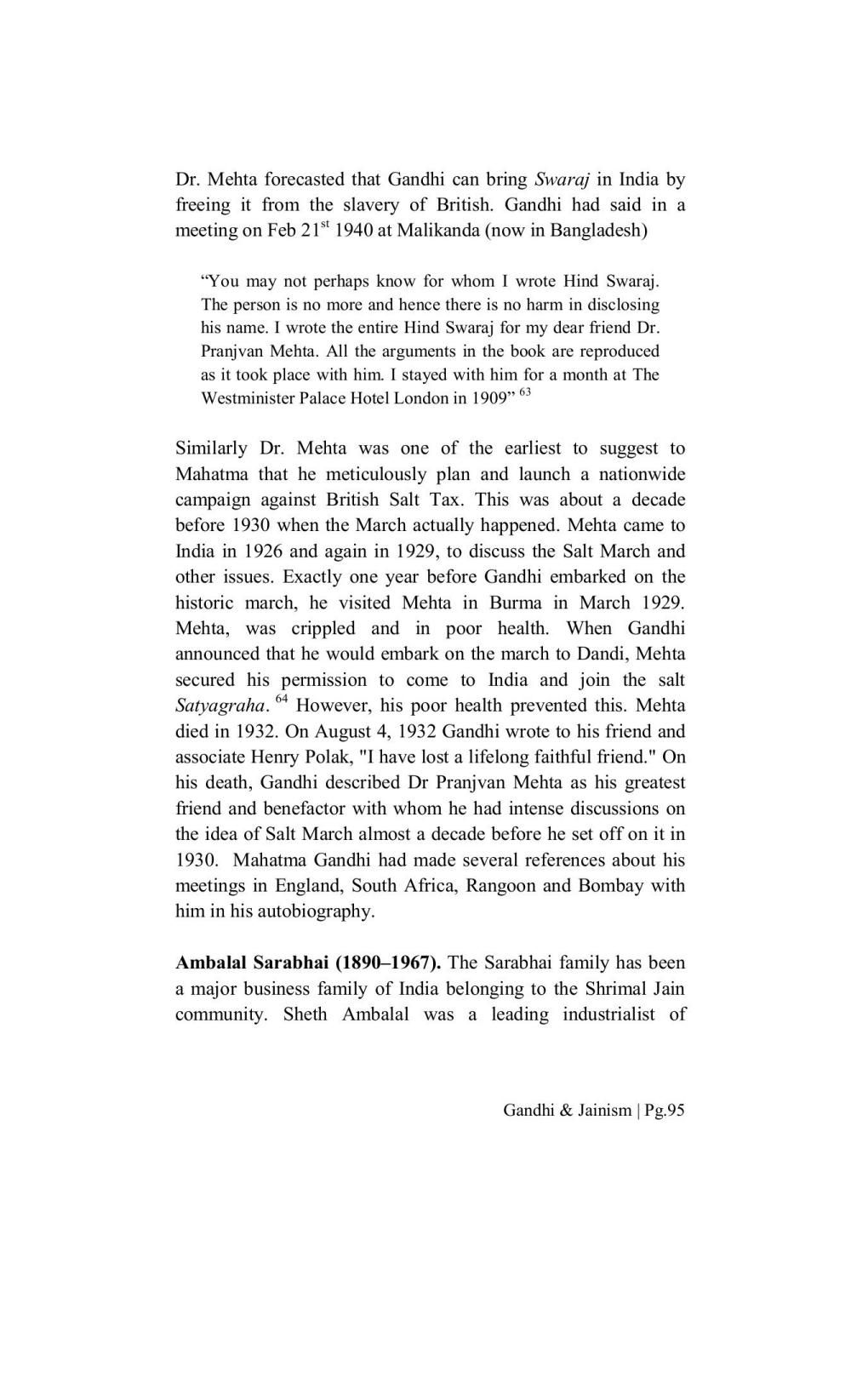________________
Dr. Mehta forecasted that Gandhi can bring Swaraj in India by freeing it from the slavery of British. Gandhi had said in a meeting on Feb 21st 1940 at Malikanda (now in Bangladesh)
"You may not perhaps know for whom I wrote Hind Swaraj. The person is no more and hence there is no harm in disclosing his name. I wrote the entire Hind Swaraj for my dear friend Dr. Pranjvan Mehta. All the arguments in the book are reproduced as it took place with him. I stayed with him for a month at The Westminister Palace Hotel London in 1909" 63
Similarly Dr. Mehta was one of the earliest to suggest to Mahatma that he meticulously plan and launch a nationwide campaign against British Salt Tax. This was about a decade before 1930 when the March actually happened. Mehta came to India in 1926 and again in 1929, to discuss the Salt March and other issues. Exactly one year before Gandhi embarked on the historic march, he visited Mehta in Burma in March 1929. Mehta, was crippled and in poor health. When Gandhi announced that he would embark on the march to Dandi, Mehta secured his permission to come to India and join the salt Satyagraha. 64 However, his poor health prevented this. Mehta died in 1932. On August 4, 1932 Gandhi wrote to his friend and associate Henry Polak, "I have lost a lifelong faithful friend." On his death, Gandhi described Dr Pranjvan Mehta as his greatest friend and benefactor with whom he had intense discussions on the idea of Salt March almost a decade before he set off on it in 1930. Mahatma Gandhi had made several references about his meetings in England, South Africa, Rangoon and Bombay with him in his autobiography.
Ambalal Sarabhai (1890–1967). The Sarabhai family has been a major business family of India belonging to the Shrimal Jain community. Sheth Ambalal was a leading industrialist of
Gandhi & Jainism
Pg.95




